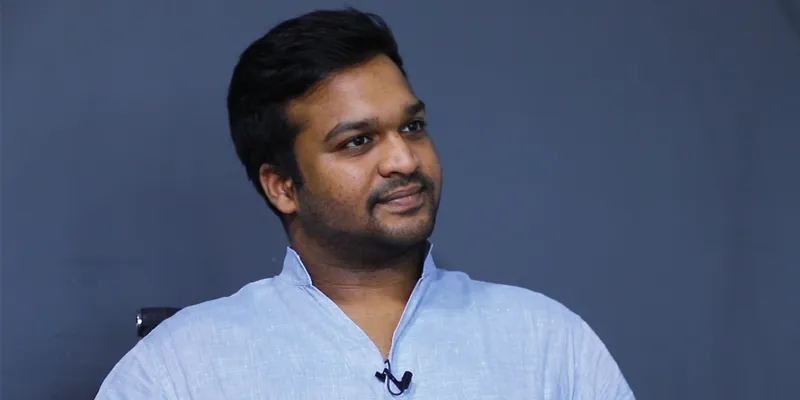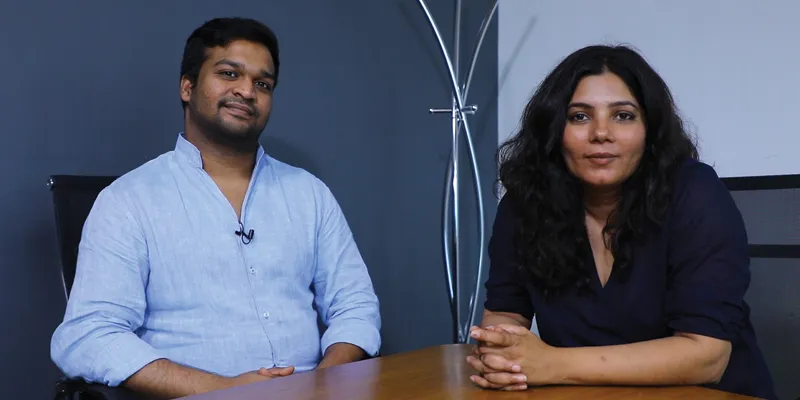WATCH: Runaya’s Annanya Agarwal on making sustainability profitable and developing football at a grassroots level in India
YourStory Founder and CEO Shradha Sharma speaks to Vedanta scion Annanya Agarwal, who is Co-founder of Runaya. He talks about his startup that is implementing first-of-its-kind technology in India to manage aluminum waste in refineries. He also dreams of making football big and mainstream in India.
Runaya Refinery is a metal startup founded in 2017 by Annanya Agarwal and Naivedya Agarwal, sons of Vedanta Chairman Navin Agarwal. The firm uses technology to process dross, a byproduct of aluminium processing, to extract more of the metal from it.
The startup, which began operations in 2018, is at present only the second end-to-end zero waste aluminium facility in the world.
Besides his desire to make the resources sector more sustainable, Annanya also wants to bring football to the masses in India by improving the country’s ability to create and identify young talent.
YourStory’s Shradha Sharma recently sat down with Annanya to talk about sustainable enterprises in India, women entrepreneurship, and developing football as a popular sport in the country.
Watch the full video interview here:
Making resources sector more sustainable
Aluminium is the second most used metal in the world after steel, according to a 2018 Niti Aayog report. In India, about 2.5 kg of aluminium per capita is consumed yearly, typically used in various sectors such as auto, transport, and construction.
The metal is also one of the most recycled and recyclable materials in the market at present, the report added. But thanks to new developments, there is scope to recycle more aluminium.
The aluminium industry produces about five million tonnes of furnace waste each year, which includes dross. Dross is a byproduct of the aluminium melting process and typically ends up in the landfill, costing the market about £50 million, the Niti Aayog report stated.
In India, Annanya estimates that about 80,000 tonnes of dross enters landfills every year and with Runaya’s technology, expects to reduce that amount by 30,000 tons by the end of the financial year.
“It's something I know very well. It's something I've grown up with. And so, we looked at business ideas to make the aluminium sector more sustainable and this sort of jumped off the page,” he adds.
The company converts dross from a Vedanta plant in Odisha into pure aluminium, using technology that it procured in an exclusive agreement with Bahrain’s Taha International. Runaya has also created a product to use the residue from the dross process in the steel industry. This is the first zero-waste, zero-discharge aluminum process in India, Annanya notes.
The idea for the startup came as he considered his strengths and interests. He has always tried to make the resources sector a more sustainable place, and knows the sector inside and out, thanks to his family background in Vedanta.
“India is where I feel I can leverage our strengths and the platform that my family business has given me,” he says.
Annanya adds that once they expand in India, the firm will look at other geographies as well. By 2022, Runaya expects to be at Rs 500 crore in revenue across the various projects it is running.
‘Thinking, dreaming football’
While sustainability is something Annanya feels strongly about, the entrepreneur notes his “absolute” passion being football. He dreams of seeing India succeed on the world stage, and is actively involved with Vedanta Group’s efforts to improve the grassroot reach of football.
“It's what I love the most. I wake up, I go to sleep thinking, dreaming, football,” he laughs.
The Vedanta Group has set up a number of football academies all over India, training over 2,000 children across three States on a weekly basis.
The group’s objective is to offer every child between the ages of six and 12 the opportunity to play the game in a safe environment. The academy provides a coach who is proficient in first aid training, and who can play with the kids and teach them a few drills.
Besides this, Vedanta Group is also on the lookout to handpick a few kids who demonstrate exceptional skill, talent, and interest in the game to join their residential academies. Vedanta has two academies in Goa, and one in Udaipur.

Annanya Agarwal
“Our direct vision has nothing to do with club ownership or franchise ownership. We want to give back to the community. We want to enable athletes in the country,” Annanya explains.
In Udaipur, Vedanta also has a technology centre where it creates reports on the children to understand their strengths and weaknesses and how they’ve improved over the years.
‘Multiplier effect’ in women’s football
And it is not just the children Vedanta works with.
“Another thing that I'd like to take this opportunity to drive home is women's football because this is a space where we don't see anyone doing anything,” Annanya says.
Vedanta run a women's league in Goa, and within two seasons, two girls have been picked up - one for the national team and one for the under-17 national team.
Annanya discusses the multiplier effect in women’s football. If Rs 10 was invested in boys’ football, Vedanta gets its return on investment back, as boys tend to use the infrastructure and investment. However, Rs 10 in women’s football expands to thousands of rupees.
“The multiplier effect in girls’ football is so many times more than with boys’ football. However, there is no one coming into the system and saying we are going to pioneer women's football in India,” he notes.
The avid football fan adds that the Indian women’s team is currently far superior to the men’s team. The Indian women are ranked at 63, despite zero infrastructure and investment into improving female soccer in the country. The men’s team is ranked at 101, despite 100 residential academies for boys across the country.

Annanya Agarwal with Shradha Sharma.
“So, one small piece of infrastructure, one residential facility, one thoughtful organised coaching set up over two or three years is all it's going to take to send this team to unimaginable places,” Annanya says.
Empowering women off the field too
Annanya believes that the goal of any entrepreneur should be about taking India to the next level. He notes that despite strong female leaders in politics and business, diversity hasn’t spread and taken root as well as it should have.
Runaya is making small steps in that regard. Their dross processing plant in Odisha is 35 percent female, making it the largest female workforce by percentage in the State. But the entrepreneur doesn’t want to stop there.
His father, Vedanta’s Chairman Navin Agarwal, is determined that the plant become fully female. Runaya is working towards training women to be machine operators, forklift operators, and teaching them to do technical and manual jobs. The firm expects that in the next 12 to 14 months, the operation will be 100 percent women.
“I think women empowerment is the lowest hanging fruit because we have not unlocked the potential of the women in this country,” Annanya adds.









